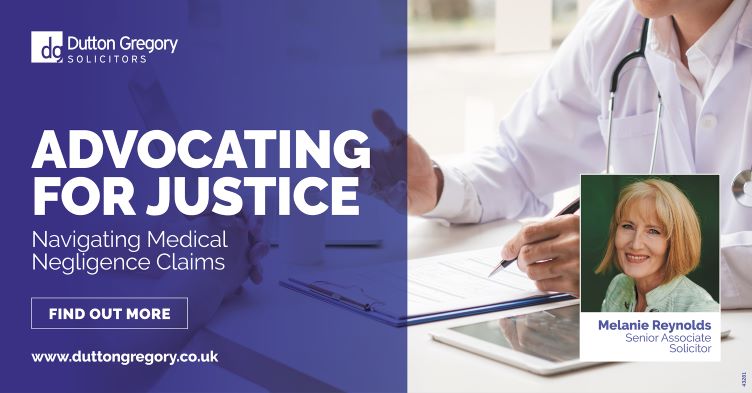In a career spanning over 25 years, medical negligence lawyer Melanie Reynolds has often found her work misunderstood. Preconceptions, misunderstandings and stereotypes often combine to give a false impression of her work at the intersection of compassion and justice, advocating for those who have suffered often life-changing injuries through no fault of their own. In this article, Melanie addresses the most common misrepresentations of her area of law.
I was inspired to have a legal career in my youth after ready about the life and ethics of lawyer, politician and former American President, Abraham Lincoln. I found his belief in honesty and determination to deal with individuals and situations fairly and with empathy, truly inspiring. Another source of influence in my teenage years was John Jay Osborn's novel about a law school called “The Paper Chase.”
I think it was my motivation to help people who found themselves in unfortunate circumstances that led me to the Personal Injury and Medical Negligence areas of law. I felt that the knowledge I had learnt and experience I was gathering could be best used to represent, defend and, in many cases, fight for the resources these people needed through situations they found themselves in.
It has therefore always been frustrating and, at times, depressing when I come up against negative comments or characterisations of the work I have dedicated my time and expertise to.
"Money, Money, Money"
One common misconception is that lawyers such as myself are solely motivated by financial gain. Seeking compensation for our clients is crucial to helping them rebuild their lives, get support for new futures that lie ahead, and make sure that anyone who is financially dependent on that individual does not suffer as a result of circumstances that were not of their making. I also believe this is the way of securing justice and accountability for harm people have endured.
Behind every case I have worked on is a human story of pain, loss, and need for closure. I realised just what an important role a medical negligence lawyer can play after one client, whose cancer treatment had been delayed to due negligence, thanked me for giving the reassurance that their child would be taken care of. In my experience, clients are also anxious to ensure what has befallen them does not happen to anyone else.
"Ambulance Chasers"
Another misconception I have often heard involves the label "Ambulance Chasers", which is usually shorthand for the idea of exploiting the tragedies of others for personal gain. When I hear that phrase, I must admit my heart does sink a little.
In reality, we are dedicated professionals who meticulously investigate cases, sift through medical records, consult experts, and navigate complex legal procedures to ensure our clients' voices are heard.
What's important to understand about our work is that it's not just about winning cases; it's about making a difference in people's lives. We stand as advocates for those who may feel powerless against large medical institutions, providing them with a voice and a pathway to justice.
"I can't afford it"
One significant barrier to seeking legal advice for potential medical negligence matters is the perception that the legal process is intimidating and expensive. Many individuals are hesitant to pursue legal action due to fears of lengthy court battles and financial strain.
I wish more people knew that most medical negligence lawyers work on a “no win, no fee” basis, meaning clients only pay if they win their case. This arrangement helps level the playing field and ensures access to justice for those who need it most.
"I didn't know"
A lack of awareness about legal rights and options can deter individuals from seeking help. Education and outreach efforts are crucial in overcoming this barrier. By providing information about the legal process, rights, and potential avenues for recourse, we can empower individuals to take action and seek the justice they deserve.
Furthermore, building trust and rapport with potential clients is vital in overcoming barriers to seeking legal advice. By fostering a supportive and empathetic environment, we can alleviate fears and uncertainties, making it easier for individuals to come forward and share their experiences.
In conclusion, as a medical negligence lawyer, I am committed to advocating for those who have suffered harm at the hands of medical professionals. Despite facing preconceptions and barriers, our work is driven by a dedication to justice, compassion, and making a positive impact in people's lives. By addressing misconceptions, breaking down barriers, and providing support and guidance, we can ensure that victims of medical negligence receive the legal representation they need and deserve.








